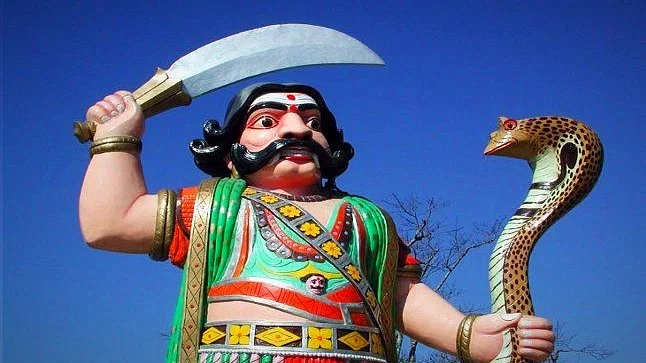Mahisha cult: An ancient tradition thriving along west Coast of India
The Mahisha cult, a historically rich and unique tradition, continues to thrive on the west coast of South India, particularly in Karnataka
PTI

Mangaluru, 3 Oct
As the controversial 'Mahisha Dasara' in Mysuru was being debated over its
legitimacy and relevance, experts in coastal Karnataka have found conclusive
evidence of the existence of Mahisha cult.
The Mahisha cult, a historically
rich and unique tradition, continues to thrive on the west coast of South
India, particularly in Karnataka. This ancient belief system finds its roots in
a time when the region was ruled by powerful dynasties like the Alupas and the
Vijayanagar Empire.
According to Prof T Murugeshi,
retired Associate Professor in Ancient History and Archaeology at MSRS College,
Shirva in Udupi taluk, the only known temple dedicated to Mahisha is situated
in Barakuru, once the capital of the Alupa dynasty in Udupi district. He added
that the presence of this temple underscores the deep cultural significance of
Mahisha in the region.
The controversy surrounding the
Mahisha cult, according to Prof Murugeshi, stems from a misinterpretation of
the word Mahisha. In Puranic texts, the goddess is said to have slain Mahisha,
who is often depicted as a demon.
However, Prof Murugeshi told PTI
that the demonisation of Mahisha is a result of Vedic influence. The Vedic
people, upon entering the South, viewed Mahisha and his followers as
adversaries, particularly because Mahisha was seen as someone who resisted
their spread and influence.
The term Mahisha has often been
misunderstood as buffalo, reinforcing the idea of a demonic entity, he added.
But according to him, early
inscriptions from the 8th and 9th centuries during the Alupa dynasty suggest a
different narrative. Rulers from this period bore the title Mygesha or
Mahige+Esha, which translates to lord of the earth or emperor. The feminine
counterpart, Mahishi, refers to a queen. -PTI
Leave a Reply
Your email address will not be published. Required fields are marked *











 (1).jpg)
.png)






